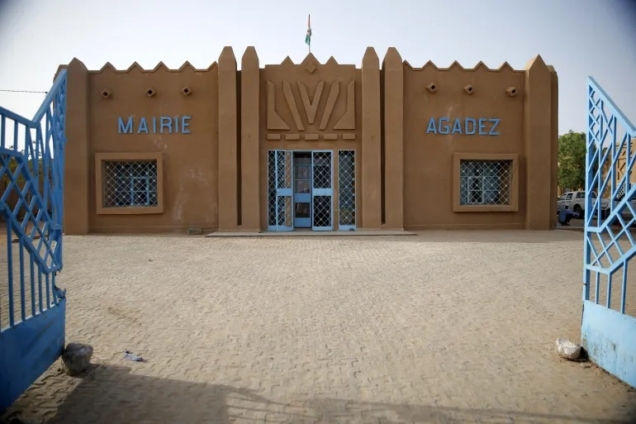
Audio By Carbonatix
Niger’s military government has revoked an anti-migration law that had helped reduce the flow of West Africans to Europe but which was reviled by desert dwellers whose economies had long relied on the traffic, it said on Monday.
The law, which made it illegal to transport migrants through Niger, was passed in May 2015 as the number of people travelling across the Mediterranean from Africa reached record highs, creating a political and humanitarian crisis in Europe where governments came under pressure to stop the influx.
Niger’s government, which took power in a July coup, repealed the law on Saturday and announced it on Monday evening on state television. The new order also stipulates that convictions handed down under the 2015 law “shall be erased”.
The government is reassessing its relations with former Western allies who condemned the coup and is seeking to shore up support at home, including in the northern desert communities that had benefited most from migration.
The number of migrants moving through Niger, a main transit country on the southern fringe of the Sahara Desert, dropped sharply over the years because of the law, but the change drained the lifeblood from towns and villages that had fed and housed migrants and sold car parts and fuel to traffickers.
In return, the European Union launched the 5 billion euros ($5,5bn) Trust Fund for Africa in 2015, aimed at eradicating the root causes of migration, but many felt it was not enough. Unemployment soared in places like the ancient city of Agadez, a popular gateway to the Sahara.
Dozens of people working in illegal migration networks have been arrested and imprisoned, and many vehicles used to transport migrants have been confiscated.
But migrants have instead taken alternative, more dangerous routes through the desert along new tracks with no water points or landmarks and no chance of being rescued if they get into trouble.
In Agadez, previously labelled by some as Africa’s smuggling capital and later as Europe’s border guard, some are happy about the latest development.
Andre Chani used to earn thousands of dollars a month driving migrants through the desert before police impounded his trucks in 2016. He plans to restart his business once he has the money.
“I’m going to start again,” he said via text message from Agadez on Monday. “We are very happy.”
Latest Stories
-
China’s BYD set to overtake Tesla as world’s top EV seller
1 second -
Joy FM’s iconic 90’s Jam returns tonight: Bigger, better, and packed with nostalgia
41 minutes -
Uproar as UG fees skyrocket by over 25% for 2025/2026 academic year
2 hours -
Japan PM joins fight for more female toilets in parliament
3 hours -
Ga Mantse declares war on fishing industry child labour
3 hours -
Adom FM’s ‘Strictly Highlife’ lights up La Palm with rhythm and nostalgia in unforgettable experience
4 hours -
OMCs slash fuel prices as cedi gains
5 hours -
Around 40 dead in Swiss ski resort bar fire, police say
6 hours -
AFCON 2025: Aubameyang and Nsue make history among oldest goalscorers
7 hours -
AFCON 2025: How Kwesi Appiah’s Sudan qualified for round of 16 without scoring any goal
8 hours -
Ghana is rising again – Mahama declares
8 hours -
Firefighters subdue blaze at Accra’s Tudu, officials warn of busy fire season ahead
9 hours -
Luv FM’s Family Party In The Park ends in grand style at Rattray park
9 hours -
Mahama targets digital schools, universal healthcare, and food self-sufficiency in 2026
9 hours -
Ghana’s global image boosted by our world-acclaimed reset agenda – Mahama
9 hours

